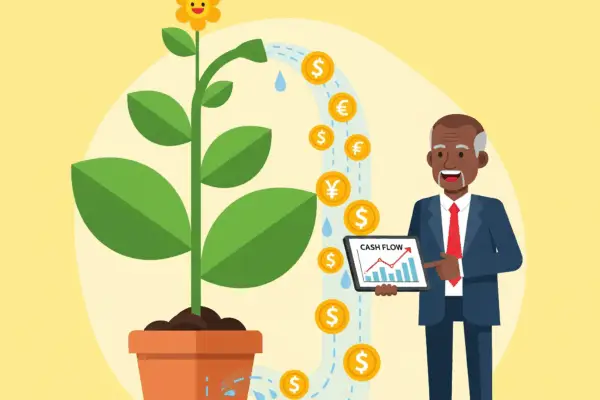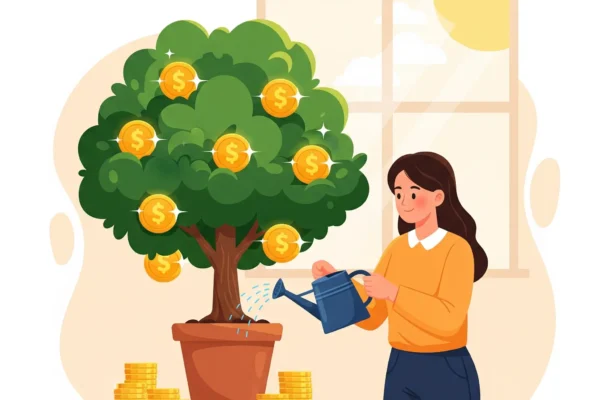We all know the power of word-of-mouth. A recommendation from a trusted friend or colleague is far more impactful than any advertisement. For service businesses, where trust and personal connection are paramount, a referral is pure gold. It arrives with built-in credibility and a higher likelihood of converting into a loyal client.
However, many businesses passively hope for referrals. They do good work and assume clients will spread the word. While this happens organically to some extent, moving from hoping to strategically building a powerful referral program is where you unlock a consistent, cost-effective engine for growth.
Why Referrals Are Your Most Powerful Marketing Asset
Let’s reiterate why focusing on referrals is a game-changer:
- High Conversion Rates: Referred leads are significantly more likely to become paying clients.
- Lower Acquisition Cost: Acquiring a client through a referral is typically much cheaper than through paid advertising or cold outreach.
- Increased Client Lifetime Value: Referred clients often have higher retention rates and a higher lifetime value to your business.
- Built-in Trust: Referrals come with an implicit endorsement, shortening the sales cycle and building trust from the outset.
- Fuels a Positive Cycle: Happy clients refer more clients, who in turn become happy clients and refer others.
Building Your Referral Engine: Key Components of a Powerful Program
Creating a successful referral program requires intentional design and consistent effort. Here are the key components:
- Identify Your Happy Clients (Your Advocates): Not every client is equally likely to refer you. Identify your most satisfied clients – those who are enthusiastic about your services and have experienced significant value. These are your prime referral candidates.
- How to identify them: Monitor client satisfaction (surveys, feedback), look for clients who give unsolicited praise, or simply ask during check-ins.
- Choose the Right Incentives: Motivate both the referrer and the referred client. Incentives don’t always have to be monetary, especially for service businesses.
- For the Referrer: Discounts on future services, a small gift, a charitable donation in their name, or exclusive access to new offerings. Public recognition (with permission) can also be powerful.
- For the Referred Client: A discount on their first service, an added-value bonus, or a special introductory package.
- Keep it aligned with your brand and client base.
- Make it Easy to Refer: This is critical. Don’t make clients jump through hoops to refer someone.
- Provide simple tools: Offer a dedicated page on your website, a simple online form, pre-written email templates they can adapt, or even business cards specifically for referrals.
- Clearly explain the process: Make it obvious how someone can make a referral and what happens next.
- Integrate it into your workflow: Remind clients about your referral program at key points in their journey, such as after a successful project completion or when they express satisfaction.
- Promote Your Program Consistently: Don’t just set it up and forget it.
- Mention it on your website, in your email signature, in your newsletters, and during client interactions.
- Educate your team on the program so they can inform clients.
- Track and Measure Everything: You can’t optimize what you don’t measure.
- Use your CRM (see, told you it was useful!) or a dedicated referral tracking system to monitor where referrals are coming from, which incentives are most effective, and the conversion rate of referred leads.
- Say Thank You (Always): Whether a referral converts or not, always thank the person who made the introduction. A little gratitude goes a long way in encouraging future referrals.
Beyond the Program: The Foundation of Referrals
While a structured program is essential, remember that the absolute foundation of a powerful referral engine is consistently delivering exceptional client experiences (as we discussed in a previous post!). Happy clients are the most likely to refer you, regardless of the incentive. Your program simply provides a framework to encourage and facilitate the word-of-mouth that is already happening naturally.
Building a powerful referral program is a strategic investment that leverages the trust and satisfaction you’ve already built. It’s a cost-effective, sustainable way to acquire high-quality leads and fuel the continued growth of your service business. Turn your happy clients into your best marketers, and watch your business flourish through the power of authentic recommendation.
What are your experiences with referral programs? What strategies have worked best for you? Share your insights in the comments below!



